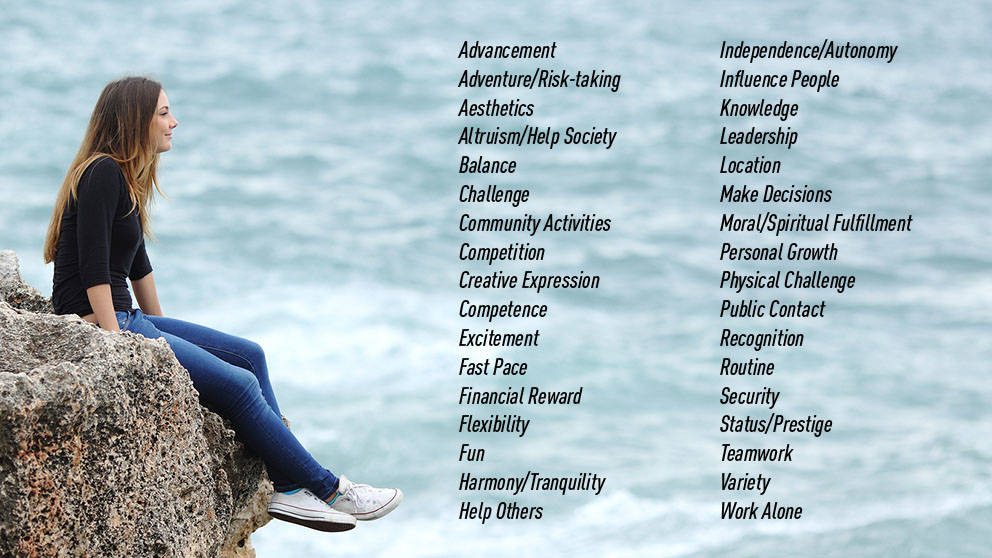While it’s fairly easy to identify your interests, it’s a bit tougher to pinpoint your strengths. In our last post, we talked about how to target the skills you’ve developed by nature of graduate or postdoctoral training in science. We can be biased when it comes to assessing our own skill set, thinking either that we are better — or worse — at a particular skill than we actually are. Still, if pressed, you could probably name a few areas of expertise you possess.
But what about identifying your personal values when it comes to work? What is most important to you in a job? What kinds of questions should you be asking yourself when seeking satisfaction through your work? These topics are not often discussed in our daily work but are crucial to consider when exploring career options, as they may ultimately impact your fulfillment.
Is it most important for you to earn a high salary at work? What about helping others? Stability on the job? Or work-life balance? The following list is one you can use as you begin to consider — and prioritize — what is most important for you to have in a job.
As you read through the values listed below, select the top nine values that are most critical to you in terms of feeling fulfilled at work.

Through this exercise, you have identified values that you feel would impact your satisfaction in a particular job. This list may represent your ideal list, all of those values that may ensure your satisfaction at work. Next, try to narrow your list down to your top two or three values. I would consider these top values as your must-haves. I would argue that if your top few values were not met, it would be very difficult to feel satisfied in a job.
Keep this knowledge with you as you start to explore different types of careers in science. Ask about the culture of workplaces you are considering to assess the fit of a specific environment with your personal values.
And review your list of values from time to time. This list may change and grow as you continue to develop as a scientific professional. Be sure to keep it with you as your career progresses, as this knowledge will impact your fulfillment at work.
For more information on careers for PhDs in science and how to identify those that fit you, check out Next Gen PhD: A Guide to Career Paths in Science.
 Melanie Sinche is an educator, writer, and career counselor with more than 15 years experience working with and advising graduate students and postdoctoral scholars in university, non-profit, and government agency settings. Her work at the Jackson Laboratory for Genomic Medicine focuses on the career and professional development of all trainees through the development of novel educational programming. Follow Melanie on Twitter at @melaniesinche.
Melanie Sinche is an educator, writer, and career counselor with more than 15 years experience working with and advising graduate students and postdoctoral scholars in university, non-profit, and government agency settings. Her work at the Jackson Laboratory for Genomic Medicine focuses on the career and professional development of all trainees through the development of novel educational programming. Follow Melanie on Twitter at @melaniesinche.